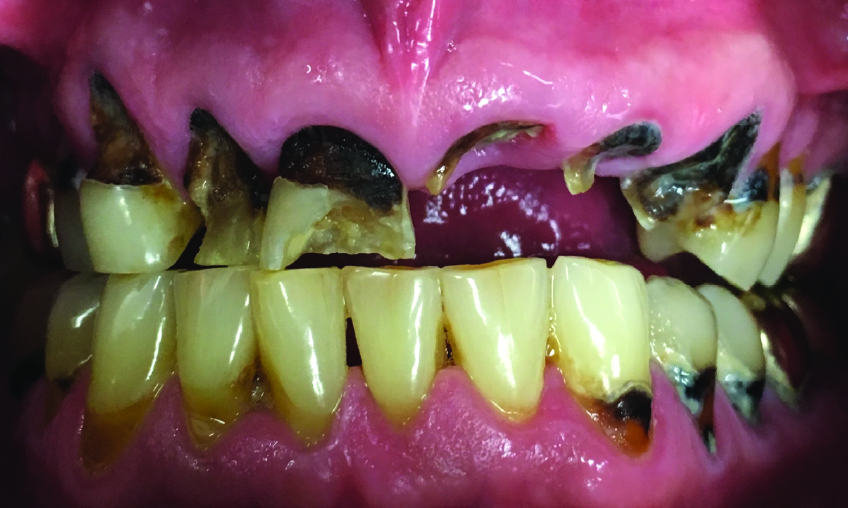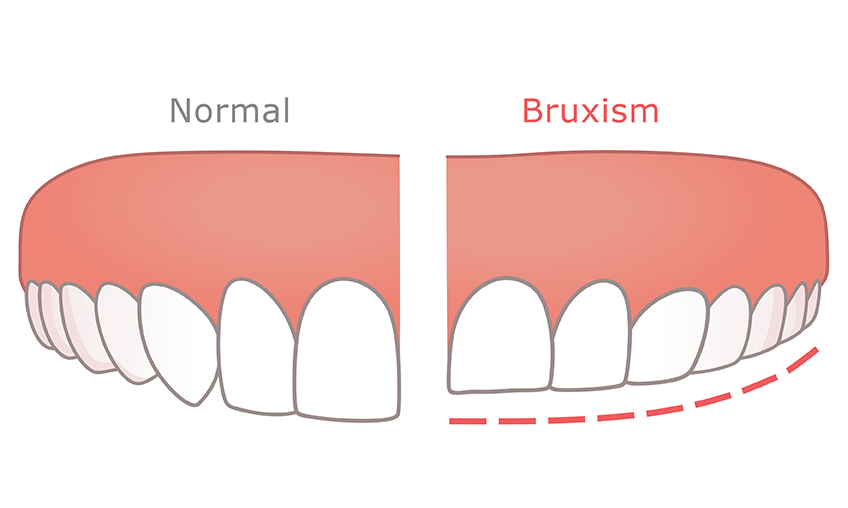
By James Grant, DDS
Methamphetamine (meth) is a highly addictive drug that does serious harm. Its different street names include speed, ice, chalk, crank, glass and crystal.
Misusing this drug can cause stroke and brain damage, according to the American Dental Association (ADA). The Journal of the American Heart Association says that it can also damage the heart, circulation system, lungs and much more.
Meth mouth (also called crank decay) is one of the most obvious signs that comes with long-term use.

The Threats of Meth Use
Meth is stronger than other drugs in the same class. While high, meth users feel:
- More energized.
- Very happy or excited.
- Less hungry.
Heart rate, blood pressure and body temperature go up from taking meth. Also, users’ breathing gets faster, and they often see or hear things that aren't real.
The more someone takes meth, the more damage the drug does. Long-term use can cause memory loss, changes in emotions, difficulty with moving and body control, and other problems of the brain and central nervous system.
Common oral health problems that progress into meth mouth include:
- dry mouth.
- gums that swell or pull away from teeth (gum disease).
- stained teeth that can eventually turn black.
- tooth decay, commonly in the front teeth first and often starting at the gum line.
- cracked or crumbling teeth.
- sores or burns on the lips, inside the mouth and/or at the back of the throat.
The reasons that meth mouth happens are complex. The drug dries out the mouth, and that makes it easier for cavities to form. Also, meth contains a lot of acid, which can eat away at the surface of teeth. On top of all that, users often crave sugary drinks and neglect oral care. These factors combine to make a playground for tooth decay.
Is meth-mouth damage permanent? It depends. The harm can be far-reaching, but early intervention lets dentists manage the condition, if not entirely reverse it. Sometimes, they need to remove damaged teeth. The key is to tackle both the addiction and its oral-health aftermath.
Getting Help
Call 1-800-662-HELP (4357) for help (English or Spanish) with mental and/or substance use issues. The National Helpline offers free, confidential, anytime treatment referral and information for anyone in the United States and its territories. Or visit FindTreatment to locate confidential, anonymous help and resources.
At DentaQuest, we advise oral health clinicians to keep contact information handy for local treatment experts and/or rehabilitation centers. Be ready to provide the information to any substance user who is willing to talk to a clinician or get help.
Improving the oral health of all is the mission of DentaQuest, a part of Sun Life U.S. Members can click here to find a dentist.
DentaQuest’s senior clinical dental advisor, Dr. Grant also serves on the Dental Hygiene Board of Colorado Mountain College and is a lifetime member of the American Dental Association, American Academy of Oral Systemic Health, and the Academy of Osseointegration. A private practitioner for 35 years, Dr. Grant is also a 12-time U.S. patent holder with FDA clearance. He created a dental implant that biomimics the root of a molar tooth and continues developing that invention. Dr. Grant earned his DDS at the Ohio State College of Dentistry.
 Preventistry Pulse Image
Preventistry Pulse Image
PREVENTISTRY PULSE
The newsletter designed for anyone who wants to improve oral health for themselves, their families, customers or communities.





